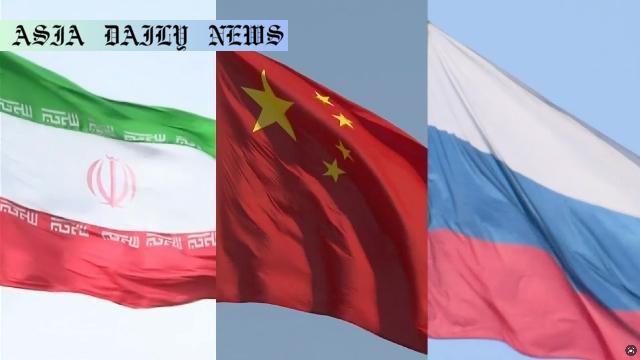Snapback Threat: Iran plans talks with China, Russia to address UN sanction threats from European nations.

Understanding the Snapback Mechanism and Its Consequences
The snapback mechanism is a critical clause of the 2015 Joint Comprehensive Plan of Action (JCPOA), commonly known as the Iran nuclear deal. It enables participants to unilaterally reimpose previously lifted United Nations (UN) sanctions if one party is found to be in significant breach of the agreement. The recent move by Britain, France, and Germany to invoke this mechanism signals growing tensions with Tehran over its nuclear activities. The consequences of reimposing these sanctions could have significant implications for Iran’s economy, regional stability, and ongoing diplomatic engagement. The snapback could also strain international relations among JCPOA signatories, as Tehran increasingly turns to its allies, China and Russia, to counterbalance Western actions.
Iran’s Strategic Discussions with China and Russia
In response to the European threat, Iran intends to hold strategic talks in Tehran with key allies China and Russia. These nations were among the original signatories to the JCPOA and have since maintained relatively supportive stances toward Tehran in the face of Western sanctions. The planned discussions represent a calculated effort by Iran to rally support and explore measures to mitigate the potential reintroduction of UN sanctions. By strengthening its alliances with powers like China and Russia, Tehran aims to reduce its vulnerability to economic and political pressure, while solidifying its position in future international negotiations.
A Complex Context: Stalled U.S.-Iran Nuclear Talks
The backdrop of these developments is the stalled state of nuclear talks between the United States and Iran. This deadlock stems from escalating tensions following attacks on Iranian nuclear facilities, allegedly led by Israel and supported by the U.S. This geopolitical context complicates efforts to rebuild trust and resume dialogue, with each side leveraging its alliances to strengthen its negotiating position. The European nations’ snapback threat appears to be a strategic attempt to pressure Iran into returning to the negotiating table. However, it also risks further polarizing the situation, potentially driving Tehran closer to its Eastern allies and undermining the original intent of the nuclear deal.
Implications for Global Diplomacy and Regional Stability
The evolving situation has far-reaching implications for global diplomacy and regional stability. For one, the reimposition of UN sanctions would likely exacerbate economic hardship for the Iranian populace, potentially fueling domestic unrest. Additionally, it could heighten tensions in the Middle East, where Iran’s influence is a major factor in regional geopolitics. On the international stage, the dispute underscores the persistent challenges of enforcing multilateral agreements in an increasingly polarized world. As Iran, Europe, and other JCPOA signatories navigate this delicate dynamic, the outcome will serve as a litmus test for the viability of diplomatic solutions to complex global challenges.
Looking Ahead: Options and Challenges
As Iran gears up for its scheduled negotiations with European representatives on Friday, the stakes are higher than ever. The outcome of these talks will not only shape the future of the JCPOA but also determine the broader trajectory of U.S.-Iran relations and Western engagement with the Middle East. The challenge lies in finding a path forward that balances accountability and diplomacy, avoiding the pitfalls of escalation and confrontation. For Tehran, leveraging its partnerships with China and Russia offers a potential lifeline, but it also underscores the fragility of the current international framework. Moving forward, all parties will need to exercise restraint and creativity to navigate this complex and high-stakes situation.
Commentary
Analyzing the Stakes of the Snapback Threat
The proposed discussions in Tehran between Iran, China, and Russia mark a critical moment in the ongoing saga of the 2015 nuclear deal. The snapback mechanism’s potential invocation by European countries has placed Iran in a precarious situation, forcing it to draw upon its alliances to navigate the crisis. This development highlights not only the fragility of the JCPOA but also the broader geopolitical tensions shaping the contemporary world order.
China and Russia’s Role in the Equation
China and Russia’s involvement in these talks is particularly noteworthy. Both nations have consistently challenged Western dominance in global affairs, and their alignment with Iran serves as a counterweight to the pressures emanating from Europe and the United States. For China, maintaining strong ties with Iran aligns with its Belt and Road Initiative and energy security goals. Similarly, Russia’s engagement with Iran reflects its strategic interests in the Middle East. The trilateral discussions in Tehran could therefore have implications that extend far beyond the immediate issue of UN sanctions.
The Broader Implications for Multilateralism
At its core, the snapback mechanism and its potential activation illustrate the challenges of enforcing multilateral agreements in today’s polarized international environment. While the JCPOA was initially hailed as a triumph of diplomacy, its unraveling underscores the difficulties of sustaining collective action in the face of shifting political priorities and alliances. The outcome of these discussions, and subsequent negotiations with Europe, will serve as a critical test of the international community’s ability to address complex issues through dialogue and cooperation.


